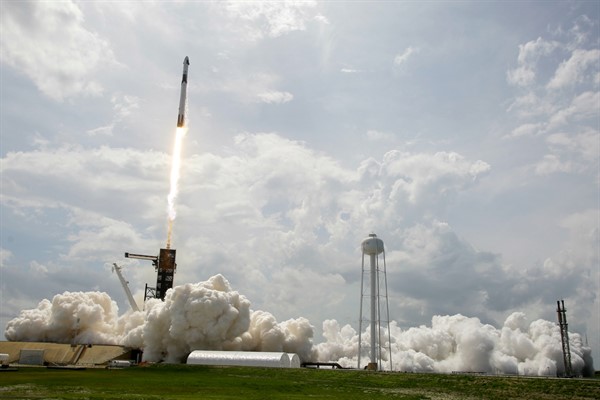The splashdown of two American astronauts, Robert L. Benken and Douglas G. Hurley, in the Gulf of Mexico last Sunday was historic in many ways. It was the first water landing by NASA since 1975, and marked the completion of the first manned trip into outer space by a private company. Perhaps most importantly, it showed that the United States has officially regained the ability to send astronauts into space.
For the better part of a decade, since the retirement of the space shuttle program in 2011, the United States depended on Russia’s Soyuz spacecraft to get its astronauts to the International Space Station. That changed with the May 30 launch of SpaceX’s Crew Dragon spacecraft, which carried Benken and Hurley 250 miles from Cape Canaveral, Florida, into low Earth orbit. The SpaceX capsule docked successfully with the space station the following day, allowing the astronauts to spend two months with their Russian colleagues on the station before returning home.
In one sense, the successful mission symbolizes an evolution in the use of outer space. At the beginning of the Space Age, in the 1950s, national governments were the only ones capable of operating in space. In fact, some of them, notably the Soviet Union, argued that there was no such thing as the private sector when it came to space. Companies historically were involved in U.S. space efforts only as government contractors.

